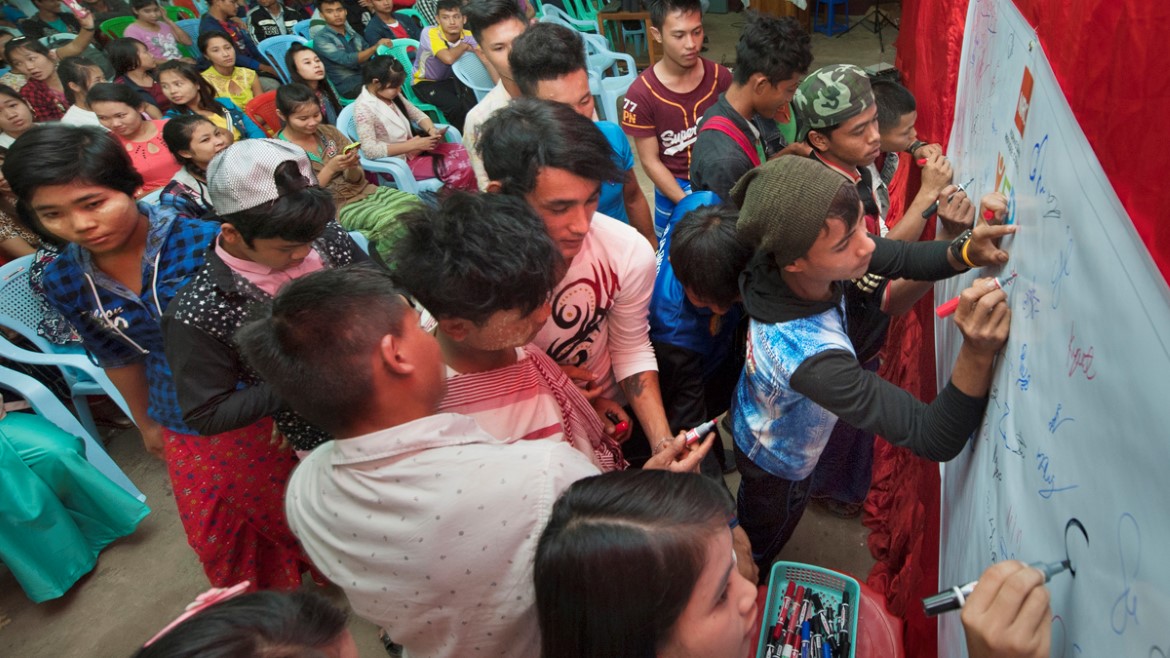
A new evaluation programme focuses on civil society
The Evaluation Department of Norad is therefore planning no fewer than four evaluations of civil society in the evaluation programme for 2017–18.
One of the evaluations examines the cooperation between Norwegian organizations and their partners, while another looks at Norwegian support to education in crises that is provided by civil society. A separate evaluation is also planned on the effect of support for information-related purposes.
‘Support for information has been widely discussed in recent years. We are therefore initiating an evaluation to study how the activities that have received funding have contributed to disseminating knowledge and generating debate on development issues in the Norwegian population,’ Bastøe tells us.
The evaluation is intended to contribute to improve the achievement of objectives.
Development aid channels
The new evaluation programme also looks more closely at other channels of Norwegian development aid and their effectiveness. In 2004, the Norwegian aid administration was reorganized with the objective of rendering Norwegian development assistance more effective and coherent.
A new evaluation will assess the consequences of this as well as later organizational changes, and will particularly examine the distribution of responsibilities between the Norwegian Ministry of Foreign Affairs and Norad, both in Oslo and in the Norwegian embassies abroad.
Multilateral organizations and funds represent another important channel for Norwegian development assistance, through which as much as 45 per cent of Norwegian aid is directed. In 2015, this amounted to NOK 15.7 billion.
‘We particularly want to look at Norway’s participation in multilateral funds, and will evaluate its appropriateness and whether we have sufficient capacity and competence to deal with all these partnerships.’
Continuing with country evaluations
In 2016, the Evaluation Department began a series of synthesis evaluations of focus countries for Norwegian development assistance. Initially reports were prepared on South Sudan, Afghanistan and Mozambique. In 2017, the Evaluation Department aims to publish reports on the remaining nine focus countries.
‘These reports, which systematize existing evaluation knowledge in a form that is easily understood, have been well received by the Norwegian Ministry of Foreign Affairs, the embassies and others involved in development assistance in these countries.’
See the conclusions and recommendations from the country reports:
- Country Evaluation Brief: Afghanistan
- Country Evaluation Brief: Mozambique
- Country Evaluation Brief: South Sudan
One of Norway’s focus countries is Myanmar. The Evaluation Department plans to use the upcoming synthesis report for Myanmar as a basis for a separate evaluation of Norwegian development assistance to that country.
‘Norwegian development aid to Myanmar has increased considerably within a relatively short period, and the country has become a “donor darling”. We wish to examine the compatibility of Norwegian aid in relation to other Norwegian involvement in Myanmar.’
In 2017, ten years have passed since the Government of Norway's International Climate and Forest Initiative was established. In that connection, several evaluations are planned as part of the follow-up evaluation of the initiative. Two evaluations are being completed already this spring.
- See overview of all evaluations of the Norwegian Government’s International Climate and Forest Initiative: norad.no/nicfievaluation
Another evaluation will look at Norway’s peace-brokering efforts in Columbia with an emphasis on distilling lessons learned that can be used in similar efforts in the future. Bastøe emphasizes that the evaluation will not look at the actual results of the peace-brokering efforts as these are matters for the future.
Human rights and private sector
The Evaluation Department also has plans for an evaluation of human rights and how account is taken of these in Norwegian aid to the private sector. Norway played a key role in the preparation of the UN’s Guiding Principles on Business and Human Rights, which have been applicable since 2011.
‘The evaluation programme has been developed based on several proposals and ideas we have received from the Norwegian Ministry of Foreign Affairs and Norad, as well as from others involved in Norwegian development assistance. The topics have been selected based on an assessment of areas that are particularly relevant for Norwegian development policy, and about which there is a need for evaluation knowledge.’
